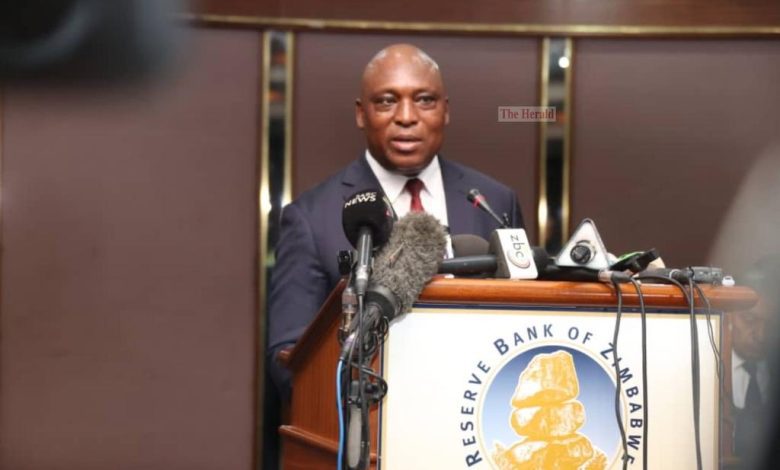Zimbabwe, Rwanda offer ripe opportunities for Gulf investors
CHAIRMAN of the country’s largest financial institution, CBZ Holdings Limited, Mr Marc Holtzman, believes Zimbabwe and Rwanda offer the best opportunities for lucrative trade and investments from Middle Eastern investors.
Zimbabwe and Rwanda are ripe for fintech investment and partnership, said Mr Holtzman, in a report by the Arabian Business publication, where he expressed his bank’s willingness to working with United Arab Emirates fintechs.
The group, which owns CBZ Bank, has positioned itself at the forefront to transform Zimbabwe’s financial services sector. It is one of the largest listings on the Zimbabwean stock market, currently owning assets worth US$2.19 billion.
The two African countries are ripe for Middle Eastern investment as they continue to press ahead with transparency drives, said the publication, quoting Mr Holtzman.
According to Mr Holtzman, who is also chairman at the Bank of Kigali, Rwanda’s largest financial institution, Middle Eastern investors are already present in Zimbabwe and Rwanda, with Dubai Ports having a strong presence in both countries.
“With a new board in place since February last year, CBZ aims to reach global investors and become a conduit for foreign investment in Zimbabwe, including Middle Eastern investors,” he told Arabian Business.
“In particular, the UAE is everywhere and dominant. It’s been especially aggressive through strategic investors,” he said.
The UAE is the second-largest investing country in Africa, second only to China, according to the Financial Times’ FDI Intelligence. Abu Dhabi Fund for Development (ADFD) has funded more than 66 projects in 28 African nations to a value of US$16.6 billion.
Today, there are 17 000 African businesses registered with the Dubai Chamber of Commerce and Industry – many of these companies leverage Dubai as a base to attract investment into their own countries.
The total value of member companies’ exports targeting African continent reached AED2.9 billion (US$790m) during the same month, marking a 4.2 percent year-on-year increase achieved despite Covid-19-related economic headwinds.
As the country with the most minerals per square kilometre, Zimbabwe offers an abundance of natural resource investments, said Mr Holtzman. The country is one of the world’s largest gold, diamond and platinum producers, as well as home to vast reserves of tantalum and lithium.
“Unlike other parts of Africa, where lots of the mining activities involve deep drilling or the resources are hard to access, in Zimbabwe it’s very accessible,” he said.
Despite the macro-economic setbacks, the country has gone through in the past few years, Mr Holtzman insisted the current market landscape still offers opportunities for financial institutions in Zimbabwe, even amid high inflation rates.
“As recently as 18 months ago, our bank had a market capitalisation of $14 million, because the market was pricing in the country risk of the past. Today, the market capitalisation exceeds $500 million. Growth will be exponential,” Mr Holtzman said.
Zimbabwe was a closed economy for many years. However, the country is now open for business, the chairman said.
“Any investment in the diamond and platinum sector was limited to indigenous Zimbabweans – it’s now open to everyone. Now is the time for serious foreign investment to target the country and take advantage,” he added.
President Emmerson Mnangagwa’s Government has unveiled a new five-year economic plan, the National Development Strategy (NDS1 2021 -2025) that is expected to deliver annual expansion of more than five percent through 2025. The blue-print focuses on “accelerated growth,” driven by agriculture, mining, manufacturing and tourism.
“Beyond natural resources, there are excellent opportunities in agriculture – CBZ is currently the largest lender in agro-business in the country,” said Mr Holtzman.
“The UAE has a lot of expertise about converting land that wasn’t previously friendly to agriculture, to being very productive.”
In the coming years, the chairman says he expects trade relations between Zimbabwe and the UAE in particular to “grow without question.”
Zimbabwe exports to UAE totalled US$832.9 million in 2019 with metals, stones and leather being the most valuable, according to the United Nations. And despite pandemic pitfalls in the past year, Mr Holtzman expects tourism to regain its lustre. At the beginning of 2020 Dubai’s Albwardy Investments completed a US$20 million purchase of Meikles Hotel in Zimbabwe’s capital Harare.
“The Meikles Hotel provides a unique opportunity to invest in Zimbabwe’s leisure and business markets as a first mover,” Laurie Ward, Albwardy director of hospitality, told Reuters in a statement.
Albwardy is expected to spend up to US$30 million in upgrading the hotel, which was established in 1915, and has 312 rooms. Other deals in the sector are likely to follow in 2021, Mr Holtzman said.
The CBZ chairman also highlighted potential investment opportunities in Rwanda, which he said presents a different set of opportunities. Rwanda is often referred to as the Switzerland of Africa. It’s growing into a very important financial services centre.
Mr Holtzman said Rwanda offers “exciting opportunities” in high quality premium tea, coffee, and natural resources such as tin, tantalum and tungsten. Zimbabwe and Rwanda are ripe for fintech investment and partnership, Mr Holtzman said.
“We have created CBZ Digital as a separate subsidiary, and the sector is really strong. One of the advantages we have in Zimbabwe and Rwanda is that 75 percent of the country don’t have formal bank accounts,” he said. There is incredible room for growth.
“It’s a journey we are already embarking on. We would welcome partnership with the UAE in this area where they’ve had a lot of success.” — Arabian Business–chronicle











